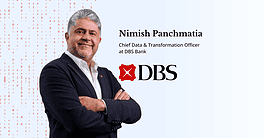Bankers are turning to a new generation of technology to accelerate clearing and settlement processes.
Three initialisms dominated payment discussions at Sibos 2017: gpi, DLT and RTP.

One central focus for cross-border transactions is Swift’s global payments innovation initiative (gpi), a framework that mandates that payments made through its system be credited the same day, have transparency of fees and contain remittance information that remains unchanged for straight-through processing.
“It’ll effectively be a quasi-new global payment standard,” says Wim Grosemans, global head of product management, payments and collections in cash management at BNP Paribas. There are initially two “products”: a gpi directory, which will identify payment routes and aid speed; and a gpi tracker, which could help corporate treasurers improve working capital and financial controls. Phase one of the project is live, enabling customer-credit transfers. Phase two is to offer digital transformation capabilities via data-rich payments in the Cloud, application-program interfaces (APIs) and other services banks may develop using the framework. A third planned gpi phase will involve a Swift-sponsored proof of concept.
Integration work is required from banks participating in gpi phase one to align Swift’s existing series of financial-message types. Hundreds of banks are expected to join the system eventually.
“Swift gpi is growing. It has now surpassed three million payments, with more than 40,000 messages a day,” says Wim Raymaekers, head of the gpi project at Swift. “Currently we have seen 120 leading transaction banks, representing over 75% of all Swift payments, signing up to the service.” Twenty-four banks are now live, with another 20 expected by year end. “The next phase of gpi will include additional digital services to further transform the cross-border payment experience,” he adds, “such as a payment assistant to provide more intelligence at origination.”
Distributed ledger technology (DLT), which relies on a system known as blockchain, is another promising technology. “Blockchain was much discussed at Sibos, but it’s still a few years away in payments and only really applicable cross-border,” says Grosemans. “It makes more sense on trade finance or compliance applications presently. But we are monitoring the technology, participating in consortiums and using it internally.”

More immediately, the launch of the US instant-payment infrastructure and other such real-time-payment (RTP) backbones around the world “oblige banks to move from batch to real-time-processing operational bases,” says Grosemans. Such efforts “require a 360-degree effort by banks to be ready” and involve “serious costs” to address financial-crime compliance, fraud and other such procedures. RTPs are “more for consumers and ecommerce applications initially,” he says, “not for corporates yet.”
The Single Euro Payment Area (SEPA) instant credit transfer (SCT Inst) system is one such effort. It will enable instant payments across the 34 SEPA countries in Europe and is eagerly awaited; though initial uptake is expected to be low, as it is not mandatory.
The EU’s PSD2 presages an open data-sharing and API environment, bankers say. “We see future banking based on platforms connecting third-party service providers as well as customers,” says Michael Spiegel, head of cash management at Deutsche Bank. “API future-proof technology is the cornerstone for further development of value-added services at Deutsche Bank.”
Spiegel notes that there are around 25 RTP systems launched or in development with many others under consideration. Apart from EBA Clearing’s SCT Inst-compliant real-time pan-European platform, which went live in November, there is also the eurosystem’s Target Instant Payment Settlement (TIPS) platform due in November 2018, alongside the domestic platforms, he says.
The European Central Bank also announced at Sibos a new real-time gross-settlement system to be greenlit before the end of the year. It will replace the decade-old Target2 platform and align with the Target2-Securities single securities settlement engine and the new TIPS platform. The move is designed to consolidate and enhance securities, collateral and cash-management services from the eurosystem.



